As you might have heard, Mormons — like many of our other religious brothers and sisters — are fairly anxious about religious freedom these days. In light of President Obama’s proclamation that January 16th is Religious Freedom day, this post suggests a number of concrete ways that we can all do a little better at honoring religious freedom.
Spoiler: “don’t bake cakes for LGBTQ weddings” didn’t make the cut.
1) Respect people of all faiths
“We ought to be aware of those prejudices which sometimes so strangely present themselves, and are so congenial to human nature, against our friends, neighbors and brethren of the world, who choose to differ from us in opinion and in matters of faith. Our religion is between us and our God. Their religion is between them and their God.” — Joseph Smith
Sometimes the faithful can be the most passionately dismissive of others’ religious beliefs. America has a long history of dominant religions oppressing minority religions. Just ask Mormons in Missouri in 1838 or the survivors of Haun’s Mill.
If we are to defend religious freedom, we must remember that when any religious group is targeted, we all have a responsibility to speak up. — President Obama
2) Respect people of no faith
We acknowledge that the same freedom of conscience must apply to men and women everywhere to follow the religious faith of their choice, or none at all if they so choose. — Dallin H. Oaks

Religious freedom covers all variations of religious belief —from the most believing to the religious “nones.” Defending religious freedom requires that every point on that spectrum is equally defended.
Religious freedom protects the rights of all groups and individuals, including the most vulnerable, whether religious or not. —Mormon Newsroom
3) Stand with minority religions
Unpopular minority religions are especially dependent upon a constitutional guarantee of free exercise of religion. —Dallin H. Oaks
Donald Trump’s threatened Muslim registry and the crisis at Standing Rock in 2016 were an opportunity for members of the Christian majority in America to stand with their fellow people of faith. Many did. Too many of us didn’t, or did so halfheartedly. In 2017, let’s be sure to try a little harder to be a little better at this.
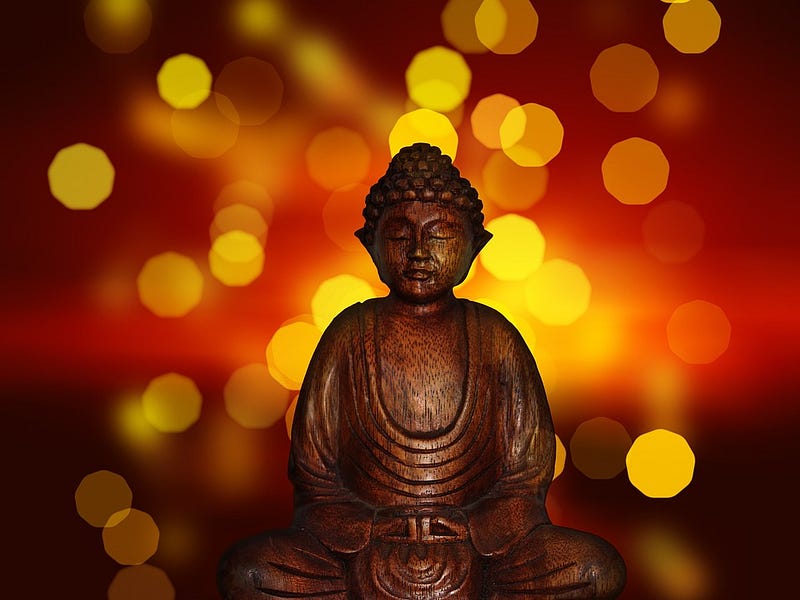
[T]he same principle which would trample upon the rights of the Latter-day Saints would trample upon the rights of the Roman Catholics, or of any other denomination who may be unpopular and too weak to defend themselves. — Joseph Smith
4) Err on the side of compassion
Part of being American means guarding against bigotry and speaking out on behalf of others, no matter their background or belief — whether they are wearing a hijab or a baseball cap, a yarmulke or a cowboy hat. — President Obama
Christians worship Jesus, a dark-skinned Jew who routinely offended the religious leaders of his day by doing exactly the opposite of what they said. If they decided someone was dirty and untouchable, Jesus went out of his way to touch them. If they decided you couldn’t shuck corn on Sunday, Jesus waited until they walked by on a Sunday, and shucked corn right in front of them.
Churches are political even when they refuse to act politically, because silence is a form of complicity and thus an endorsement of the status quo. — Robin R. Meyers
Religion is supposed to help us love each other more, not beat each other over the heads with the weight of our interpretations of scripture.

This becomes easier when we remember that Elder Oaks has taught us just because we religious folk don’t get our way legally doesn’t mean that we’re somehow oppressed:
Religious belief is obviously protected against government action. The practice of that belief must have some limits. — Dallin H. Oaks
5) Use religious freedom to bring people together, not drive people apart
We have a responsibility to be active in the communities where we live … and to work cooperatively with other churches. … It’s important that we eliminate the weakness of one standing alone and substitute for it the strength of people working together. — President Monson
We have a great opportunity in religious diversity. All religions of the world have truth and goodness to share. And all religions call for more love, more compassion, and more service.
[T]hroughout our history, faith communities have helped uphold these values by joining in efforts to help those in need — rallying in the face of tragedy and providing care or shelter in times of disaster. — President Obama
If we prioritize being right over love and service — if we use faith as an excuse to be mean to others — we are doing far worse than hiding our light under a bushel.
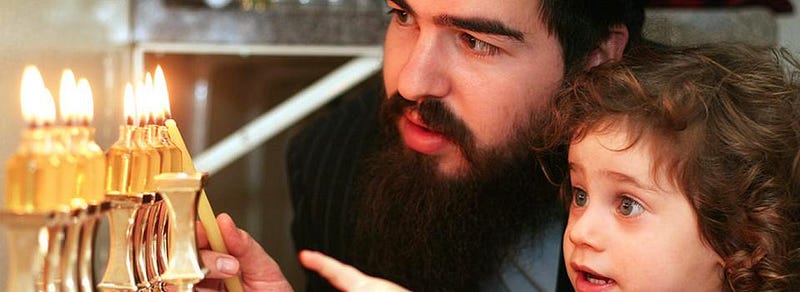
image credit: mormonnewsroom.org
As Christians, our most “deeply held religious belief” is that Jesus Christ died on the cross for sinful people, and that in imitation of that, we are called to love God, to love our neighbors, and to love even our enemies to the point of death. So I think we can handle making pastries for gay people. — Rachel Held Evans
6) Listen
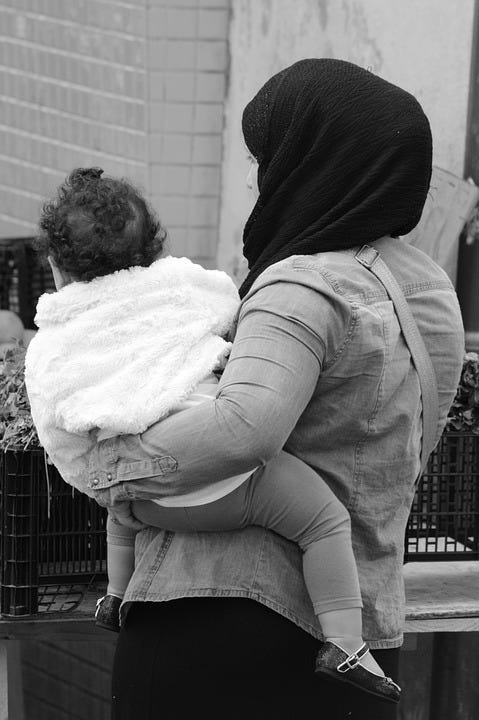
Nobody likes talking with someone who knows they’re 100% right about something. This is especially true when it comes to matters of faith. When our number one goal is to prove we’re right or defend our turn, we’ll miss out on opportunities to learn and grow.
As a Nation, our strength comes from our diversity, and we must be unified in our commitment to protecting the freedoms of conscience and religious belief and the freedom to live our lives according to them. — President Obama
7) Let others worship how, where, and what they may
A church can claim access to higher authority on moral questions, but its opinions on the application of those moral questions to specific legislation will inevitably be challenged by and measured against secular-based legislative or political judgments. — Elder Dallin H. Oaks
It’s easy to forget that some people worship differently than we do, but should still be allowed their religious preference.
Yet while I do this work because of my faith, I also recognize of course that in a pluralistic society there are many different perspectives. It is both unrealistic and wrong to insist that everyone hold my views, my faith. The place we meet, in our differences, is in the founding documents of our democratic republic. — Sister Simone Campbell
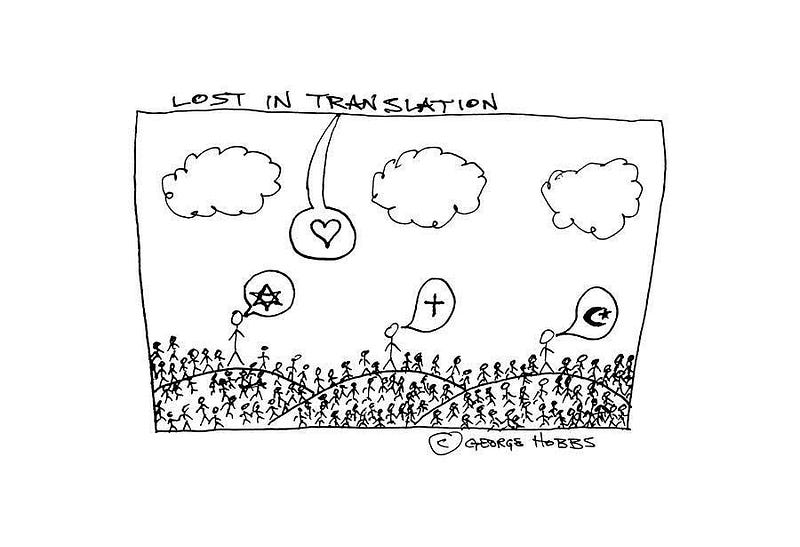
8) Disagree without being disagreeable
“Hooray for differences! Without them, there would be no harmony. In principles, great clarity. In practices, great charity.” —Sister Chieko N. Okazaki
Religious freedom means freedom for religion, but also freedom from religion. Freedom from hatred and judgment. Freedom from oppression because of religious beliefs.
[I]n a nation with citizens of many different religious beliefs, the right of some to act upon their religious principles must be qualified by the government’s responsibility to protect the health and safety of all. — Dallin H. Oaks
9) Be bold in defense of both sides of religious freedom
As L. Tom Perry wisely taught “Besides protecting our own rights, we must protect the rights of others, including the most vulnerable and the least popular. We must show mutual respect for others and treat all civilly. No one should be belittled for following his or her moral conscience.”
The religious beliefs of people like Sister Simone Campbell and Rev. William Barber (and many others) drive them to defend LGBT rights just as sincerely and religiously as others’ religious beliefs drive people to restrict them. It’s not religious freedom if it just defends me and my perspective.
In other words, there’s a “religious right” and there’s a “religious left.” There’s all shades of a religious middle. Our nation is healthiest when we allow all sides to come to the table rather than pretending our side is the only legitimate one.
We are at our best as fellow citizens when the push-pull of different viewpoints, freely and thoroughly aired in national debate, leads ultimately to compromise and resolution and we move on as a nation, stronger than before. — Sister Neill F. Marriott
10) Don’t turn religious freedom into a competition
While it might be easy to attempt to compare persecution complexes, religious freedom isn’t about who gets picked on the most. Persecution is all too rampant across the world — both of religious people and by religious people.
When we are so caught up in how oppressed are, we’re not able to actually live the part of our religion that asks us to love other people, to watch their backs in a dangerous world.
Indeed, a quick glance around this broken world makes it painfully obvious that we don’t need more arguments on behalf of God; we need more people who live as if they are in covenant with Unconditional Love, which is our best definition of God. — Robin R. Meyers
A version of this post was also published at MormonPress.

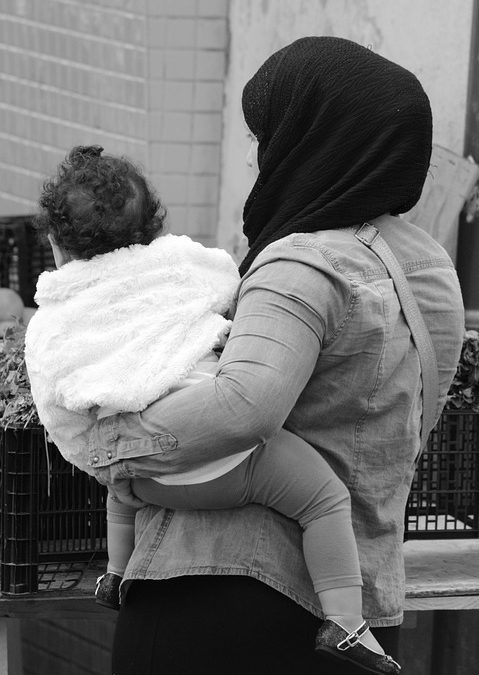



Some good thoughts Jeff. Thanks for the reminders!
tbh, since not baking cakes for gay weddings didn’t make the list, I didn’t trust anything you said, since I’m pretty sure that’s the very definition of religious freedom 😉
But besides that, it was an excellent list.
Great list!
Thanks Jeff!
“Religion is supposed to help us love each other more, not beat each other over the heads with the weight of our interpretations of scripture.”
Amen
Daniel,
Gay couples want a wedding cake. They aren’t asking for your approval, they simply want a wedding cake. You are not their spiritual advisor. Has a question been added to the Temple Recommend interview regarding providing services for gay weddings?
As someone in an interracial marriage, which was discouraged on religious grounds not so long ago, I have tried to put myself in the gay couple’s shoes, and as a Mormon who at one point thought it would be wrong to bake a “gay wedding cake,” I have also tried to put myself in the cake bakers’ shoes.
Would my husband and I have been hurt by the bakers’ refusal? Undeniably yes, especially if it was done without any attempt at respect. Would I have thought they were small minded? Would I be mad? Yes and yes. BUT I would also understand that religious beliefs are not easily set aside. I wouldn’t demand that a Muslim caterer serve pork, or a Hindi caterer serve hamburgers. I wouldn’t expect the Mormon-owned Marriott to serve beer and porn (hee hee).
I think this goes back to the point of “Be bold in defense of both sides of religious freedom.” I think the Church shot itself in the foot by coming out so strongly against gay marriage, and now hoping for sympathy in its exercise of religious freedom…. But I hope the liberal community can rise above the impulse for revenge.
“I wouldn’t demand that a Muslim caterer serve pork, or a Hindi caterer serve hamburgers. I wouldn’t expect the Mormon-owned Marriott to serve beer and porn (hee hee).”
That analogy isn’t an apples-to-apples comparison.
A wedding cake is the product. What makes a wedding cake for a gay couple different than any other wedding cake? Now, if the baker didn’t provide wedding cakes to anyone then refusing a gay couple would be acceptable. And, the baker could refuse to make a sexually explicit cake, or a cake containing alcohol because the baker doesn’t provide those types of cake to anyone.
An apples-to-apples comparison would be you and your husband being refused service. Or, a Muslim caterer refusing to serve women etc etc.
And, what if you are gay and living in a small area where no baker will bake your cake? Are we going to legalize discrimination on a case-by-case basis?
Btw. Marriott allows its hotels to be used for gay weddings.
And the hotels also have alcoholic beverages
I see your point. My examples are product based. Let me resubmit:
A Mormon-owned business asked to cater a Coors or Playboy company party.
A Jewish-owned business asked to cater for Mothers Against Circumcision.
A Hindu-owned bakery asked to provide desserts for a slaughterhouse.
A Jewish-owned party supply store asked to sell a dreidel pinata to the KKK.
If I applaud performers who deny their services for Trump’s inauguration based on their political conscience, I can’t say religious conscience is less valid, even if my religious conscience differs.
Also, if I wasn’t clear, I would not sue a bakery that denied me a wedding cake on the basis of a misguided religious belief against interracial marriage. I would, however, take action against a baker who refused my business on the grounds that our relationship was “disgusting,” “polluting the white race,” etc.
It’s not impossible to legislate that if you can’t refer them to a similar business, you’re stuck baking the cake.
The Marriott example was tongue in cheek. Sorry, it’s hard to convey that it writing.
Laurel,
“A Mormon-owned business asked to cater a Coors or Playboy company party.
A Jewish-owned business asked to cater for Mothers Against Circumcision.
A Hindu-owned bakery asked to provide desserts for a slaughterhouse.
A Jewish-owned party supply store asked to sell a dreidel pinata to the KKK.”
Again, not an apples-to-apples comparison. Participants in Coors, Playboy, Slaughterhouse, KKK events are not protected
classes. In the case of the gay people you are denying them service because the participants are gay–just as you would be denying service to an interracial couple’s wedding.
And, most definitely some religious people who previously were allowed to deny service to interracial couples did so thinking the couples were “disgusting,” “polluting the white race” etc. whether they said that openly or not. In fact, there are people who believe that still. Why should we tolerate that? While I could understand why one might not want to expend the time and money to sue, one would hope that some other type of effort would be made to combat ignorance and prejudice as MLK did.
“No change can come if those who are impacted the most by discrimination are not willing to stand up for themselves.”
Zainab Salbi
Another example:
If a gay couple wanted you to cater their bachelor party because you would find the activities (strippers etc)there objectionable that would be fine—as long as you deny service to straight bachelor parties too.
“It’s not impossible to legislate that if you can’t refer them to a similar business, you’re stuck baking the cake.”
If the gay couple visits all the bakeries in town and all turn them down–who and how is it determined which bakery will have to bake them the cake?
Further recommended reading:
http://www.aclu-il.org/it-was-never-about-the-cake/
I’d argue that the matter of religious conscience IS an apples-to-apples comparison in all of the examples, but as a legal matter, you are right, it’s not an exact comparison.
Adapting my examples for protected classes would only require that the representative from Coors, Playboy, or slaughterhouse be a protected class. But I don’t think the Jewish party supply example needs tweaking, assuming the branch of the KKK in question considers themselves a “Christian” group, as many of them do. The Mothers Against Circumcision probably stands as-is as well, since they are (I assume) predominantly female.
If we accept that the customer matters more than the end-use of the product, the bakery would have every right to refuse if a gay couple’s white, straight, male, agnostic friend ordered and paid for their cake as a wedding present.
I see a difference in refusing to serve any cake at all to a gay person (or your example of a Muslim refusing to serve a woman), and refusing to support an event that is contrary to your beliefs.
I believe the origins of such beliefs are bigoted — or grossly misguided, at best — but I don’t believe that everyone who believes homosexuality is wrong are bigots, nor do I believe that everyone who, once upon a time, believed that interracial marriage was wrong was a bigot. It used to be preached against from the pulpit with scriptural support, same as homosexuality, and I don’t fault the people who trusted their leaders, who had trusted THEIR leaders. I think of it like the explanation a seminary teacher gave our class of Moroni’s harsh condemnation of those who believe in infant baptism, that it was the originators of the belief and not its subsequent adherents who “must go down to hell.” (Moroni 8:14) Yes, some people with these religious beliefs ARE bigots. A Christian who refuses to cater a bachelor party might hate drunks and strippers, but it doesn’t mean he doesn’t have also a sincere conviction that this type of bachelor party is wrong.
If change is the goal, I think this cake has hardened rather than softened hearts. You can’t financially ruin someone’s conscience into submission. The “Christian” bakery has become a martyr for the anti-gay mob, an Alamo to remember. Yes, the true “Christian” thing to do would be to bake the d*** cake, in my opinion, but if I believe in religious freedom, I believe in it for everyone, not just those who share my beliefs. Telling people to set aside their consciences is possibly how anti-gay beliefs took their pernicious hold on religion in the first place.
I have taken a stand in the form of filing a complaint when we’ve strongly suspecting housing discrimination. Since it would be difficult to argue that religious conscience precludes being party to Hispanics having a roof over their heads, renting out to us would have been no infringement on the landlord’s rights.
On the point of every business within a given radius refusing — I’d think the problem would be best solved by the couple then having their pick of any business, since none complied with the requirement to refer them to a willing business.
I appreciated the linked article because I hadn’t yet read a firsthand account. I have no doubt this was a humiliating experience for the poor couple.
I am not convinced that there are two sides to Freedom of Religion. Like all other human rights, Article 18 of the Universal Declaration of Human Rights is quite clear as to meaning. And like all human rights, it cannot be separated from the others–they are universal and indivisible. Even a casual reading of Article 18, or other more recent renditions, do not sustain a definition that would permit, much less encourage, discrimination on the basis of sexual orientation or sexual preference. The U.S. religious right has taken a position that is not found in significant numbers in Europe or in many other Christian majority countries.